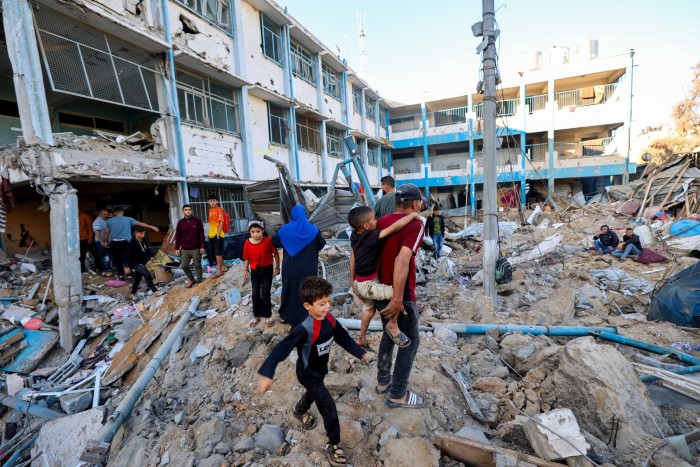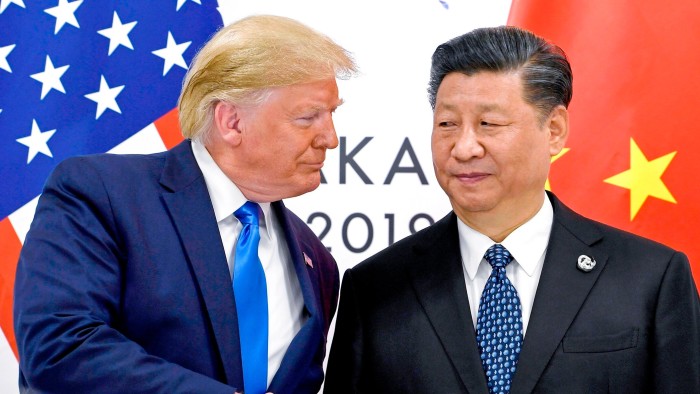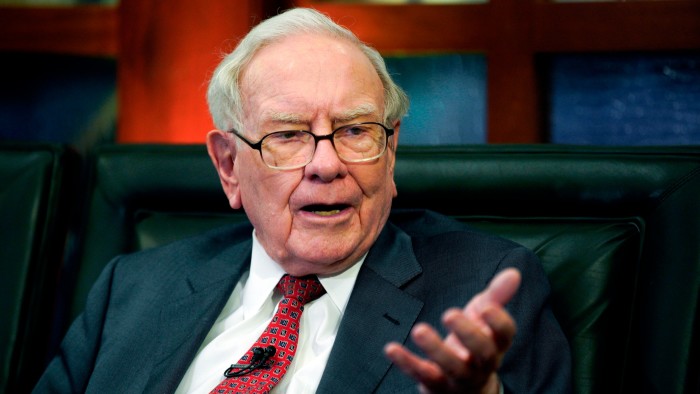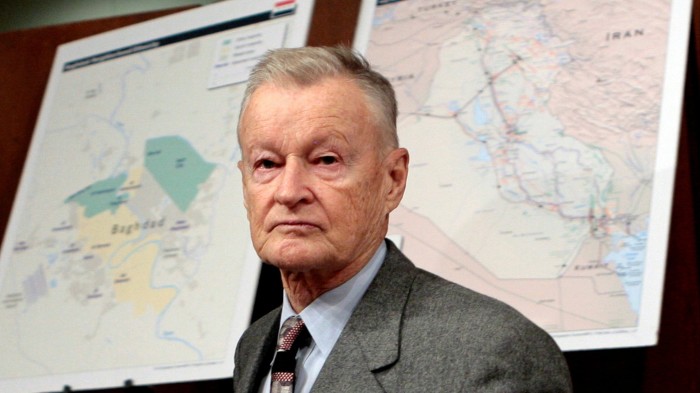Trump team gives ultimatum to UN over Gaza aid plan

Donald Trump’s aides have threatened the UN and other international humanitarian groups with funding cuts and other sanctions if they do not back a new US-led aid plan for war-torn Gaza, according to people familiar with the matter.
Steve Witkoff, the US special envoy for the Middle East, issued the warning in a private briefing to UN security council ambassadors on Wednesday in New York, while his aide Aryeh Lightstone spoke to a meeting of UN officials in Geneva on Thursday.
The most significant threats were directed towards the World Food Program (WFP) and the UN agency for Palestinian refugees, UNRWA, the largest aid providers in Gaza, according to three people familiar with Witkoff’s conversations.
The WFP was told that the US, its largest donor, would sever funding that currently makes up some 40 per cent of its budget, a step that would endanger programmes in trouble spots such as Sudan and Bangladesh.
According to one person familiar with WFP deliberations, the agency’s director Cindy McCain has stood “firm”. “It was a hard no [from her],” the person said. A WFP spokesperson did not return emails seeking comment.
Washington also threatened to revoke the “grace and comity” immunity enjoyed by UNRWA in the US — essentially a form of diplomatic protection that the US has said it can remove at will. That would potentially leave the agency open to litigation over allegations that some of its Gaza employees played a role in Hamas’s October 7 2023 attack on Israel.
UNOPS, the key logistics agency inside the global body, also faced US threats of a funding freeze. “We’re under a lot of pressure,” said one senior UN official. “It’s public shaming and major threats to defund [if we don’t participate].”
Another person close to the situation insisted the US envoy had made no threats and warned that opponents of the new aid plan were seeking to undermine the initiative.
The Trump administration has aggressively gutted much of the US foreign aid apparatus, shuttering agencies like USAID and slashing foreign assistance budgets.
But funding for the UN and its programmes is still being negotiated. The US threats to cut funding to the WFP was first reported by the Times of Israel.
Israel halted the entry of all food, water, and other essentials to Gaza in early March, after Benjamin Netanyahu’s government ended a two-month ceasefire in the shattered Palestinian enclave.
The enclave has since entered a state of extreme food insecurity, with the WFP and others exhausting their stores of food. Fruit, vegetables and meat have largely vanished from markets.
The Israeli government imposed the siege in a bid to pressure Hamas to release the hostages it still holds in Gaza, alleging that the group was siphoning aid for its own fighters and to sell on the black market.
Israeli officials, in co-ordination with the Gaza Humanitarian Foundation (GHF), a little-known entity incorporated in Switzerland in February, have devised a new plan to funnel aid into the enclave with the assistance of US private military contractors that they claim will circumvent Hamas.
The UN on Sunday rejected the scheme as not fulfilling the “core fundamental humanitarian principles of impartiality, neutrality, and independent delivery of aid”.
UN officials fear distributing aid alongside an IDF-backed private organisation would endanger staff and potentially implicate them in Israel’s efforts to drive the enclave’s population to the southern edge of the strip.
Mike Huckabee, the US ambassador Israel, dismissed the reports that the aid plan was Israeli as “wholly inaccurate”. Huckabee added that it was “strictly a humanitarian operation” initiated by Trump that Israel would help secure. “They will not be involved in the distribution of the food,” he said on Friday.

“Either way Israel and the US wins,” said the senior UN official. “Either the UN caves and plays along, compromising its humanitarian principles and neutrality, or the UN leaves and Israel gets to do this anyway with other partners.”
A second senior UN official, who does not support the new Gaza aid scheme, still criticised the global body for not engaging with Israel. “We prefer to remain religiously pious and not attend any talks on Gaza,” they said. “There’s an order from the top . . . they would rather die as heroes and show that we don’t blink under pressure.”
In a GHF proposal seen by the Financial Times, the group says their scheme will provide assistance through the initial establishment of four “Secure Distribution Sites”. These would be set up in southern Gaza and secured by armed private contractors.
According to the proposal and several people briefed on the plan, Palestinians will be invited to the distribution sites, most likely on a weekly basis, to pick-up “pre-packaged rations, hygiene kits, and medical supplies”.
GHF has budgeted $1.30 per meal, including the cost of logistics, which it claims will be enough to provide every “at-risk civilian” with a 1,750 calorie meal.
Access to the sites would be through tightly controlled Israeli military corridors known as “filtration points” that would monitor recipients.
The GHF anticipates that each distribution site could serve 300,000 people, which initially would come to encompass some 1.2mn of Gaza’s total 2mn population — a scale that humanitarian officials and even Israeli military officers believe is highly unrealistic.








